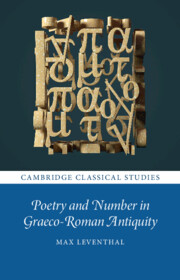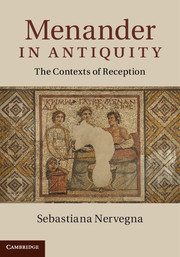Poetry and Number in Graeco-Roman Antiquity
Poetry and mathematics might seem to be worlds apart. Nevertheless, a number of Greek and Roman poets incorporated counting and calculation within their verses. Setting the work of authors such as Callimachus, Catullus and Archimedes in dialogue with the less well-known isopsephic epigrams of Leonides of Alexandria and the anonymous arithmetical poems preserved in the Palatine Anthology, the book reveals the various roles that number played in ancient poetry. Focussing especially on counting and arithmetic, Max Leventhal demonstrates how the discussion, rejection or enacting of these two operations was bound up with wider conceptions of the nature of poetry. Practices of composing, reading, interpreting and critiquing poetry emerge in these texts as having a numerical component. The result is an illuminating new way of approaching Greek and Latin poetry – and one that reaches across modern disciplinary divisions.
- ddot; Provides the first book-length study examining the intersection of poetry and number in ancient Greece and Rome · Introduces readers to the many poems that engage with number and demonstrates their literary sophistication · Sets out the wider literary, mathematical and intellectual contexts which motivated poets to incorporate number, counting and arithmetic in their verses
Product details
May 2022Hardback
9781009123044
248 pages
228 × 145 × 16 mm
0.4kg
Available
Table of Contents
- Introduction: Numbers Up
- Part I. Counting and Criticism:
- 1. Callimachus and his Legacy
- 2. Leonides of Alexandria's Isopsephic Epigrams
- Part II. Arithmetic and Aesthetics:
- 3. Archimedes' Cattle Problem
- 4. The Arithmetical Poems in A.P. 14
- Conclusion: Summing Up Poetry.






